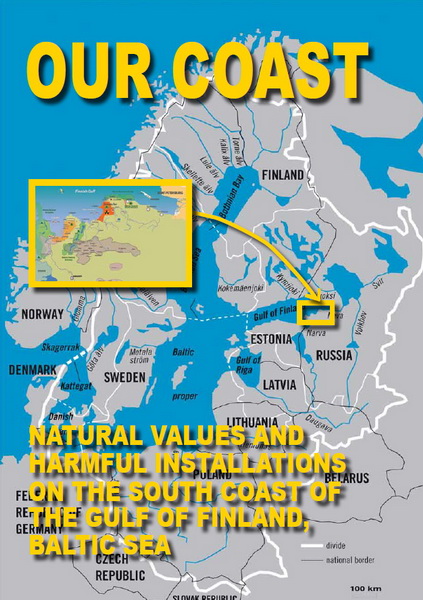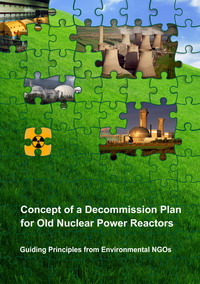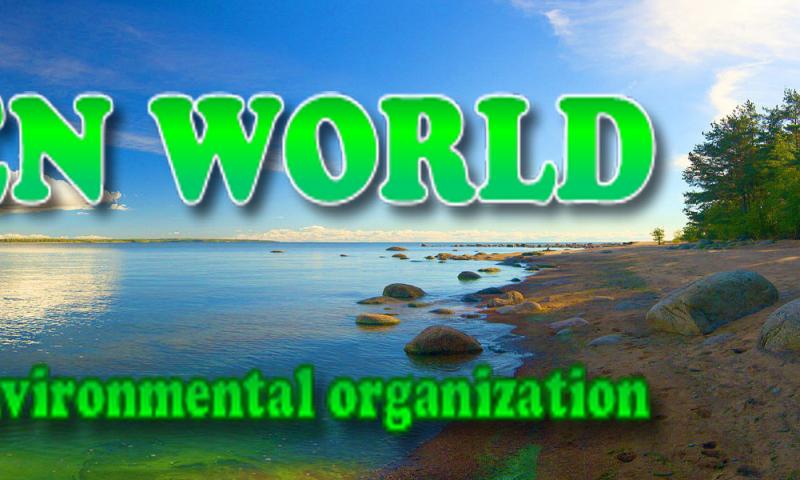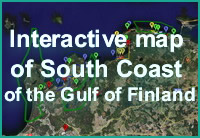
 |
The South Coast of the Gulf of Finland |
|---|---|
| Natural Values and Harmful Installations |
 |
Concept of a decommission plan for old nuclear power reactors |
|---|---|
| Guiding Principles from Environmental NGOs |
Russian Federal Security Service Blocks Independent Research In The Atomic Neighborhoods and Accuses A Researcher Of Spying
Baltic News № 85
On December 22, 2004 a sociologist Olga Tsepilova from the St. Petersburg Sociological Institute of the Russian Academy of Sciences (SI RAS) made the report for the Board of Inspectors under the Russian Commissioner for Human Rights (Vladimir Lukin). You can find the abridged version if her report below.
Olga Tsepilova, a senior researcher, Doctor of sociology, has told about the blockage of studies for possible solutions of socio-ecological problems typical of closed neighborhoods (official name 'closed administrative territory units' - ZATO) in Russia.
Local authorities and Russian citizens living on the territory of ZATOs have no alternative jobs, for this reason such locations are doomed to nuclear industry-related development. In such communities the mechanisms of market economy and democracy do not work, which produces a grave environmental, economic and social hazard for the society, because there is no civil control of the situation there.
This prohibition of sociological studies in the Ural Region can be considered as a precedent and repeated in Sosnovy Bor, where Olga Tsepilova was planning to conduct her research in 2005. These research plans have been approved by the Presidium of the Russian Academy of Sciences in January 2003. In November 2004 the Scientific Council of the SI RAS confirmed that Sosnovy Bor would remain the main target territory of the academic studies of Olga Tsepilova in 2005.
The measures aimed at blocking public awareness about the social and environmental situation in Sosnovy Bor have already been taken:
- In autumn of 2003 the regional ecological laboratory was closed. For 30 years the laboratory had been conducting environmental and radiological monitoring of the neighborhood of a nuclear complex located 80 km from St. Petersburg on the South coast of the Gulf of Finland Baltic Sea (Sosnovy Bor). This monitoring, independent from the nuclear industry, provided important data on the influence of hazardous facilities on the human health and environment. Now nuclear- and radiologically-hazardous companies control themselves.
- In autumn 2004 a local newspaper VESTNIK LAES (Leningrad NPP Newsletter) was closed. The newspaper was used as a platform for discussing social and other problems of the nuclear complex. Igor Kiselev, former editor of the VESTNIK LAES, said in his letter sent to the GREEN WORLD: "Leningrad NPP is turning into the community closed for the free flow of information".
The restricted admission to Sosnovy Bor presents an obstacle for the development of non-nuclear business and possibilities for alternative jobs.
In this way the indirect, but effective promotion of nuclear development is carried out in absence of the efficient civil control of its safety.
In violation of the Russian legislation, without the state environmental examination and public participation hazardous atomic facilities poising a threat to the whole Baltic region have been put into operation. Local authorities and community living under the threat of direct influence from those hazardous facilities cannot influence the strategy for their development and check their safety level.
The sociological studies of closed communities belonging to Sosnovy Bor type can provide recommendations on ensuring socio-ecological safety in such neighborhoods for politicians and society.
Oleg Bodrov,
GREEN WORLD, Sosnovy Bor
O. D. Tsepilova, Ph.D.
Sociological Institute, Russian Academy of Sciences
RUSSIAN COUNTERINTELLIGENCE STOPS SOCIAL ENVIRONMENTAL STUDIES IN NUCLEAR CITIES.
SOCIOLOGISTS ARE ACCUSED OF SPYING
As a worker of Academy of Sciences I have done social-environmental studies for more than twenty three years. My areas of specialization are social environmental movements, environmental conflicts in new investment policy, a formation and development of Russian environmental policy, and beginning from 2002 a social environmental context of nuclear cities' development.
All my previous professional experience determined my interests in the last area. On December 2002, the Research Council of the Sociological Institute included my project Contaminated Communities of Russia: Sociological Analysis of History and Social Consequences (A Case of Closed Administrative-Territorial Formation (CATF)) to a research plan of the Institute for 2003-2005. In January 2003, the Russian Academy of Sciences' Presidium also approved the project which received its own number of state registration (01.20.03 11411). Two cities were approved as objects of my study: CATF Ozersk in Cheliabinsk oblast' and Sosnovy Bor, a semi-closed city in Leningrad oblast'.
There were several reasons for choosing of Ozersk as the object of the study. Firstly, according to its social-demographic characteristics Ozersk is a typical Russian CATF. Secondly, Maiak, one of the most contaminated with nuclear waste enterprises that belongs to the Russian Nuclear Agency (the former Ministry on Nuclear Industry). Finally, three nuclear disasters happened at this enterprise in the past. The consequences of these disasters have influence the local population till now. The region continues to draw new environmental risks: the Russian Nuclear Agency hides the main proportion of Russian and foreign nuclear wastes at Maiak's territory; Maiak constructs the only in Russia and the largest in the World a depository of nuclear decaying materials; the Russian Nuclear Agency again discusses plans to construct the South-Uralic Nuclear Power Plant.
The Russian Academy of Sciences practically does not support financially empirical studies. That is why beginning from 2003 I tried to find a financial support for the empirical part of my study in Russian and foreign research and public foundations. A public social-environmental organization "Planet of Hopes" in Ozersk agreed to provide money for the study according to its project CATF of Russia: Civic Activity and Human Rights. The National Endowment for Democracy (NED) that legally works in Russia financially supported the project of Planet of Hopes.
I planned to conducted a representative survey in Ozersk (N = 600). The goals of the survey were to investigate the environmental, social-economic, cultural, and political attitudes among the respondents, to compare their environmental, economic, and social priorities; and to elucidate protest actions of the respondents produced by the poor environmental situation. Specifically, I wanted to find how the population saw the environmental situation in Ozersk, whether it was conscious of nuclear risks, how people estimated their health conditions, what they thought about necessity to live in a close community, whom they accused for nuclear disasters at Maiak in 1940s - 1960s, and so on. My colleagues and I intended to use the results of the study for preparation of scholastic reports and publications, as well as for a development of recommendations for an improvement of the local environmental policy. We planned not only to obtain research results, but also wanted to help the population of this territory.
On April 2004 г. the second co-head of the study Aleksandr Duka and I got a permission to enter Osersk for a preliminary negotiation. After this negotiation we left a package of documents necessary for a permit of our research group to come to Ozersk in the Department on the Secret Regime of the City. All the documents included authentic information and corresponded to all requirements of the law.
We planned to leave for Ozersk on May 14, 2004. But On May 12 director of Maiak V. Sadovnikov forbade our group to come to Ozersk. Moreover members of Osersk municipal administration provoked me to write a letter in order to pass it non-formally to V. Sadovnikov to encourage him to cancel his decision and to save the study. I had only two hours from 7 to 9 in the morning on May 14 to prepare this letter and was not able to contact with the director of my institution. That is why I could not exclude some mistakes in the official registration of this new letter. Nobody passed the letter to V. Sadovnikov. Instead it went to officers of counterintelligence - Federal Service of Security (FSB) in Ozersk. In the future this became the only document that FSB used against me. Again I stress that the letter was not a document required by the Russian law in order to obtain a permit to come to the city and it was sent after a time limit which the law gives to Ozersk administration in order to answer requests like ours.
The study was disrupted. On May 20, 2004 I was invited to the district office of FSB. I showed officers of FSB my questionnaire, the other documents necessary for the study, and documents on my relations with "Planet of Hopes" and tried to discuss procedures of the study that could satisfy all the organizations in Ozersk. The officers declined my attempt. Moreover they told that it was likely that I would be accused in spying. They specially stressed that in fact a foreign foundation supported the project. I understood that their threats were very serious and applied for help to a social human right organization Bellona that asked their lawyer to provide me with legal help. In two months of an active defend (letters to FSB, complaints to a prosecutor's office, and so on) it looked that the story became to go out slowly. Nevertheless, in a half of year after the beginning of the case and in four months after its going out a newspaper Komsomol'skaia Pravda published a paper of Aleksei Sobolev with a sentence "Olga Tsepilova would receive money from CIA" printed with a large font. The paper also stated that it was a judicial investigation against me. It is interesting that the paper appeared simultaneously with a preliminary verdict against a physicist Valentin Danilov. And one detail more. A previous paper of Aleksei Sobolev published on July 2004 was also devoted to Danilov's case. Sobolev showed his dissatisfaction with an absolutory sentence of a jury. In the Soviet period a practice existed that newspapers would present such publications according to KGB requirements.
So, what is a result of active actions of FSB against the sociologists?
The study was disrupted. An inspection of my business papers and financial documents does not show violations of laws. The FSB only produced unproved statements that O. Tsepilova "created causes and conditions that helped to substantialize threats for the Russian Federation's security (Statement of St. Petersburg and Leningrad oblast' Department of FSB, May 28, 2004), that Tsepilova was accused in "and attempt to collect data of unestablished character" (the same document) and a statement that Tsepilova had "relations with CIA"(Komsomol'skaia Pravda, November13, 2004). Thus, attempts to fabricate new "spy cases" become more provocative and more unproved. A search for enemies among scholars continues.
Unfortunately, the Russian society becomes more and more indifferent to the growing mania of spying. That is why I am especially grateful to my colleagues-sociologists and NGO's such as Bellonar, Civic Control, GREENPEACE of Russia, Center of Environmental Politics of Russia, Public Committee on Protection of Scholars, Institute for Development of Liberty of Information, "Planet of Hopes" (Ozersk), Cheliabinsk Regional Public Fund "Helping Hand", Human right group "Step Towards" (Snezhinsk), and "Green World" (Sosnovy Bor) for their moral support.
Oleg Bodrov,Olga Tsepilova, Tatiana Talalaeva.
When reprinting please refer to our periodical


